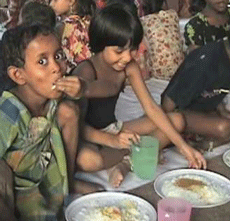Nearly 30% of Indians lived in poverty in 2011-12: Rangarajan panel
07 Jul 2014
About 29.5 per cent of the country's population lived in poverty in 2011-12, according to a report on poverty prepared by a committee headed by C Rangarajan, former chairman of the prime minister's economic advisory committee.
 As per the report submitted by the Rangarajan panel, persons spending below Rs47 a day in cities would be considered poor, against the Rs33-per-day level suggested earlier by the Suresh Tendulkar Committee.
As per the report submitted by the Rangarajan panel, persons spending below Rs47 a day in cities would be considered poor, against the Rs33-per-day level suggested earlier by the Suresh Tendulkar Committee.
The Rangarajan panel considers a person spending less than Rs1,407 a month (Rs47 a day) as poor in cities, as against the Tendulkar Committee's estimate of Rs1,000 a month (Rs33 a day).
For the rural population, the committee estimates Rs972 a month (Rs32 per day) as subsistence level against the Rs816 a month (Rs27 per day) recommended by Tendulkar Committee.
People living in poverty came down to 29.5 per cent of the country's population in 2011-12 from 38.2 per cent in 2009-10, according to the Rangarajan Committee.
Against this, the Tendulkar Committee had estimated that 29.8 per cent of India's population lived in poverty in 2009-10, which declined to 21.9 per cent in 2011-12.
In absolute terms, 363 million people in the country lived in poverty in 2011-12, against 454 million in 2009-10, according to the Rangarajan panel.
The Tendulkar Committee had suggested that the number of poor in India stood lower at 269 million in 2011-12 against 354 million in 2009-10.
The Rangarajan Committee was set up last year to review the Tendulkar Committee methodology for estimating poverty, which had assumed households with per capita consumption of more than Rs33 in urban areas and Rs27 in rural areas as not poor.
An affidavit submitted to the Supreme Court in September 2011, stating that only 20 per cent of the country's population was living below poverty line as per the Planning Commission's estimates based on the Tendulkar committee's report, had drawn flak.
The Rangarajan Committee was set up to clear the ambiguity over the number of poor in the country.


















